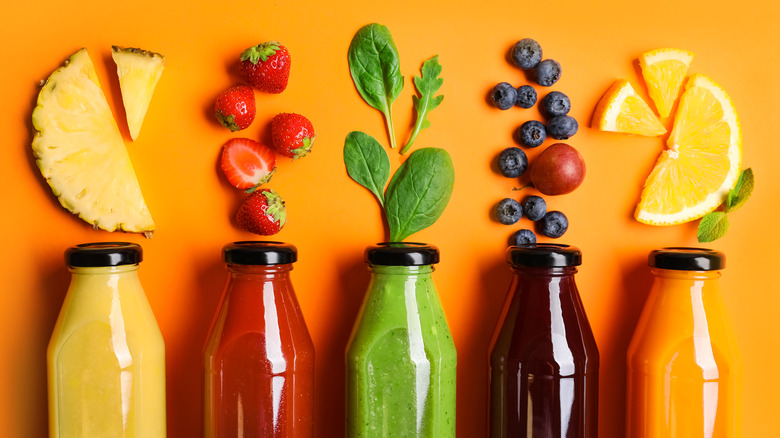Drinking soda doesn’t just threaten to make us fat; it may be related to a better cancer threat, judging from a new study. But here’s the more significant surprising component: so ought fruit juices.
Increased daily intake of approximately three—4 oz. Of soda — roughly a third of a can of — become associated with an 18 percent higher risk of some cancers in a take a look at published in the British Medical Journal. The chance of breast tumors alone rose even more, via 22, according to the cent. Researchers found that when humans drank an identical quantity of unsweetened fruit juice, they were much more likely to develop cancer.
The studies, part of a broader effort in France to investigate hyperlinks between nutrients and fitness, are the first to find a connection between sweet drinks and cancer. The findings may additionally taint the image of fruit juices, which might be frequently perceived—and promoted—as wholesome.
“All drinks — both with sugar or without — are secure to eat as a part of a balanced weight loss program,” the American Beverage Institute said in an announcement. The enterprise organization said that beverage organizations are running to offer extra picks with decreased or no sugar, smaller package sizes, and clean calorie facts.
‘There isn’t any Mediterranean food plan anymore’: Even in its namesake area, obesity is skyrocketing.
Bankrupt with the aid of most cancers
The researchers tracked 97 beverages, 12 artificially sweetened and carbonated beverages, sports beverages, syrups, and pure fruit juices. The correlations they determined don’t always imply that liquids lead to most cancers. The study didn’t seek to recognize the motive for the hyperlink. However, the researchers speculated that sugar’s impact on visceral fats, blood-sugar ranges, and irritation might additionally play a function. Additives determined in sodas and pesticides in fruit could also affect, they wrote.
The observation determined no improved cancer hazard from sugar-free liquids, although so few of the humans studied consumed them that the effects may not be giant, the researchers said. Water, unsweetened tea, and coffee also showed no heightened chance.
The study is a part of France’s NutriNet-Sante, a web-primarily based look at following approximately one hundred 000 volunteers since 2009.
Research into the affairs of impartial store Pressed Juices is underway this morning as court docket-appointed liquidators seek to untangle an internet of companies that allegedly underpaid people.
Last Friday, a NSW court-appointed liquidators from Cor Cordis to Pressed Juices Holdings Pty Ltd, which is thought to control several entities related to the chain.
The development is the new research to be undertaken into Pressed Juices after ASIC posted a chain of deregistration notices associated with the commercial enterprise in December, ultimately 12 months.
Pressed Juices Holdings is indexed as owned by dthe registered corporation Pressed Juices Investments. At the same time, Vincent ‘Leo’ Pegoli, a businessman with longstanding involvement with the brand, is the sole director.
People are also indexed as the directors of deregistered organizations VPMP Investments Pty Ltd and Pressed Juices Manufacturing & Production Pty Ltd.
Another enterprise associated with the chain, Pressed Juices Retail Pty Ltd, also lists Pegoli as its sole director and remains actively buying and selling, keeping records posted by the corporate regulator.
It is not the first time Pressed Juices has undertaken corporate restructuring. Back in 2016, the corporation was placed into administration by using Pegoli, a circulate that caused an investigation into a 2014 transfer of organization belongings to yet another business.
CreditorWatch statistics show that more than 30 credit inquiries have been made for Pressed Juices Holdings during the last 365 days. Payment defaults have additionally started to build up, valued at more than $20,000, as suppliers continue to bill the company.
At its peak, Pressed Juices maintained approximately 22 shops throughout the u. S. A ., predominately in Victoria and NSW, uses more than one hundred worker groups and organizations featured in guides, including Broadsheet, spruiked as a disruptive player bringing the bloodless-pressed juice fashion to the Australian market.
However, allegations surfaced over the final year that Pressed Juices had underpaid many of its workers, with information posted through Junkee revealing a tangled web of companies’ numerous factors of the commercial enterprise.
It is not recognized whether workers had been lower back paid for any possible underpayments, but the business enterprise has a record of restructuring, placed into management returned in 2016.




